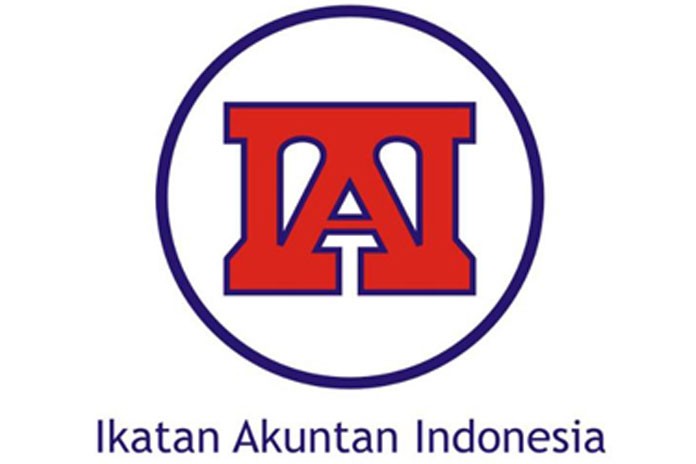PENGARUH TANGGUNG JAWAB SOSIAL KORPORAT KEPADA PEKERJA TERHADAP KINERJA EKONOMI PERUSAHAAN MANUFAKTUR DI BURSA SAHAM INDONESIA
Abstract
Keywords
Full Text:
PDFReferences
Al-Matari, Ebrahim Mohammed., Al-Swidi, Abdullah Kaid & Faudziah, Hanim Bt Fadzil. 2014. The measurements of firm performance’s dimensions. Asian Journal of Finance & Accounting 6 (1): 24-49.
Aras, Guler., Aybars, Asli., & Kutlu, Ozlem. 2011. The interaction between corporate social responsibility and value added intellectual capital: empirical evidence from Turkey. Social Responsibility Journal.7 (4): 662-637.
Arsoy, Aylin Poroy., Arabaci, Ozer & Ciftcioglu, Aydem. 2012. Corporate social responsibility and financial performance relantionship: the case of Turkey. The Journal of Accounting and Finance. January: 159-176.
Balabanis, George., Phillips, Hugh C & Lyal, Jonathan. 1998. Corporate socialresponsibility andeconomic performancein the top Britishcompanies: are theylinked?. European Business Review. 98 (1): 25-44.
Cavaco, Sandra&Crifo, Patricia. 2014. CSR and financial performance: complementarity between environmental, social and business behaviours. Applied Economics. 46 (27): 3323-3338.
Cavazotte, Flavia &Chang, Nicolas Corteze. 2016. Internal corporate social responsibility and performance: a study of publicly traded companies. BAR Rio de Janeiro. 13 (4): 1-19.
Cooper, Elizabeth W. & Uzun, Hatice., 2015. Corporate social responsibility and the cost of debt. Journal of Accounting and Finance. 15(8): 11-29.
Donaldson, Thomas & Preston, Lee E., 1995. The stakeholder theory of the corporation: concepts, evidence, and implications. Academy of Management Review. 20 (1): 65-91.
Fauzi, Fitrya & Locke, Stuart. 2012. Board structure, ownership and firm performance: a study of New Zealand listed-firm. Asian Academic of Management Journal of Accounting and Finance. 2: 43-46.
Flamer, Caroline. 2013. Does corporate social responsibility lead to superior financial performance? A regression discontinuity approach. Cambridge : MIT Sloan School of Management.1-27.
Fooladi, Masood & Zaleha, Abdul Shukor. 2012. Board of directors, audit quality and firm performance: evidence from Malaysia. National Research & Innovation Conference for Graduate Students in Social Sciences 2012 (GS-NRIC), December 7-9, Mahkota Hotel, Melaka.
Gaudencio, Pedro., Coelho, Arnaldo., & Ribeiro, Neuza. 2014. Organizational CSR practices: employees’ perceptions and impact on individual performance. International Journal of Innovation Management. 118 (4): 1-26.
Ghozali, Imam. 2017. Model persamaan struktural konsep dan aplikasi dengan program AMOS 24 update Bayesian SEM. Edisi 7. Semarang : Badan Penerbit Universitas Diponegoro.
GRI (2007). Available at:
Hair Jr, Joe F., et.al. 2014. Partial least squares structural equation modeling (PLS-SEM) an emerging tool in business research. European Business Review. 26 (2):106-121
Hendrastomo, Grendi. 2010. Menakar kesejahteraan buruh: memperjuangkan kesejahteraan buruh diantara kepentingan negara dan korporasi. Jurnal Informasi. 16(2): 1-16.
Hernandez, M Isabel Sanchez, at.al. 2016. The effect of internal side of social responsibility on firm competitive success in the business service industry. Suistainability. 8 (179):1-15.
Hirigoyen, Gerard & Rehm, Thierry Poulain., 2015., Relationships between corporate social responsibility and financial performance : wahat is the causality? Journal of Business & Management, 4 (1): 18-43.
International Labour Organization. 2015. Tren Tenaga Kerja dan Sosial di Indonesia 2014-2015. Kantor ILO untuk Indonesia.
Long, Cuu Hoang., 2015. The impact of market orientation and corporate social responsibility on firm performance: evidence from Vietnam. Academy of Marketing Studies Journal. 19 (1): 265-277.
Madinah, Dina et al., 2018. Tanggung jawab social korporat terhadap pekerja dan kinerja ekonomi: satu tinjauan. Jurnal Riset Akuntansi Terpadu. 11(2): 177-191.
Mohammad, Anber Abraheem Slash., Altarifi, Shadi Mahmd Mosbah., & Alafi, Khalid K., 2014. The impact of corporate social responsibility toward employees on company performance: a Jordanian study. Interdiciplinary Journal of Contemporary research in Business. 6 (5): 225-270.
Mory, Linda.,Wirtz, Bernd W. & Gottel, Vincent. 2015. Corporate social responsibility stretegies and their impact on employees commitment. Journal of Strategy and Management. 9 (2): 172-201.
Mwangi, Cyrus Iraya & Jerotich, Oyenje Jane. 2013. The Relationship between corporate social responsibility practices and financial performance of firms in the manufacturing, construction and allied sector of the Nairobi securities exchange.International Journal of Business, Humanities and Technology. 3 (2): 81-90.
Nakamura, Eri. 2015. The bidirectional CSR investment – economic performance relationship. Journal of Global Responsibility. 6 (1): 129-144.
Roberts, Robin W. 1992. Determinants of corporate social responsibility disclosure: an application of stakeholders theory. Accounting Organizations and Society. 17(6): 596-612.
Sanda, A., Mikailu, A. S., and Garba, T. (2005). Corporate Governance Mechanisms and Firm Financial Performance in Nigeria. AERC Research Paper 149, African Economic Research Consortium, Nairobi.
Short, Helen & Keasy, Kevin. 1999. Managerial ownership and the performance of firms: Evidence from UK. Journal of Corporate Finance. 5(1): 79-101.
Tamm, Katrin., Eamets, Raul., & Motsmees, Pille. 2010. Relationship between corporate social responsibility and job satisfication: the case of Baltic countries, University of Tartu, Faculty of Economics and Business Administration.
Torugsa, Ann Nuttaneeya & O’Donohue, Wayne. 2012. Capabilities, proactive CSR and financial performance in SMEs: empirical evidence from an Austarlian manufacturing industry sector. Journal Bus Ethics. 109 : 483-500.
Tsoutsoura, Margarita. 2004. Corporate social responsibility and financial performance. California: University of California at Berkeley.
Tuzchu, Arcan. 2014. The impact of corporate social responsibility perception on the job satisfaction and organizational commitment. Journal of The Faculty of Economics and Administrative Sciences. 4 (1) : 185-202.
Tziner, Aharon., et.al. 2011. Corporate social responsibility organizacional justice and job satisfaction: how do they interrelate, if at all?. Revista de Psicologia del Trabajo y
Wang, Maobin., Qiu, Chin., Kong, Dongmin. 2011. Corporate social responsibility, investor behaviors, and stock market return: evidence from a natural experiment in China. Journal of Business Ethics. 101: 127-141.
www.globalreporting.org/NewsEventsPress/PressResources/PR280808RCA.htm
Zieantara, Piotr., et.al. 2015. Corporate social responsibility and employee attitudes: evidence from a study of Polish hotel employees. Journal of Sustainable Tourism. 23: 859-880.
Zuhroh, Diana & Sukmawati, I Putu Pande Heri. 2002. Analisa Pengaruh Luas Pengungkapan Sosial dalam Laporan Tahunan perusahaan terhadap Reaksi Investor, Simposium Nasional Akuntansi VI IAI-KAPd, Surabaya
Zunaidah, Sulong., et.al. 2013. Managerial Ownership, leverage and audit quality impact on firm performance: evidence from the Malaysian ace market. Accounting & Taxation. 5(1): 59-70.
DOI: http://dx.doi.org/10.35448/jrat.v12i2.6166
Refbacks
- There are currently no refbacks.
pISSN 1979-682X eISSN 2528-7443
Jurnal Riset Akuntasi Terpadu (JRAT) is licensed under a Creative Commons Attribution 4.0 International License







